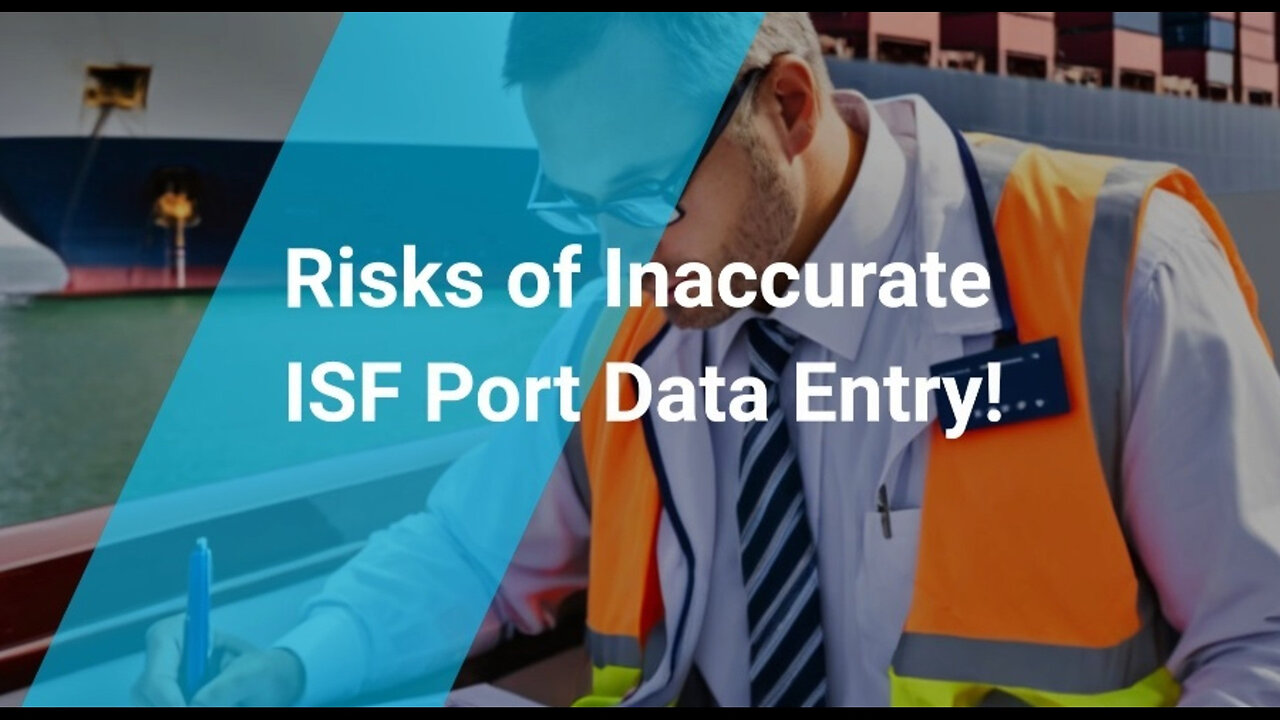Premium Only Content

ISF Mistakes: What Happens When the Foreign Port of Lading is Incorrect
US Customs Clearing | 213-270-1930 | [email protected] | https://uscustomsclearing.com/
This response provides an in-depth exploration of the consequences that can arise if the foreign port of lading is inaccurately reported in the Importer Security Filing (ISF). The ISF is a mandatory requirement by the US Customs and Border Protection (CBP) for shipments entering the United States, aimed at enhancing maritime security and facilitating risk assessment of cargo. The accurate reporting of the foreign port of lading is crucial for smooth processing and compliance. Inaccurate reporting can result in entry rejections, penalties and fines, cargo examinations, and increased scrutiny from CBP. To avoid these issues, importers and their agents should collaborate effectively with shipping partners, implement robust internal processes, and maintain open lines of communication.
#usimportbond #isfcustomsbroker #uscustomsclearing #isfentry
Video Disclaimer Here: For learning purposes only, We claim no affiliation with any US government agency.
00:27 - ISF Port Data Entry: The Importer Security Filing (ISF) requires accurate reporting of the foreign port of lading for shipments entering the United States.
1:21 - Consequences of Inaccurate Reporting: Inaccuracies in the foreign port of lading can lead to entry rejection, penalties, cargo examinations, and increased scrutiny from U.S. Customs and Border Protection.
2:44 - Prevention Measures: Importers and their agents should collaborate with shipping partners, verify ISF data accuracy, and maintain open communication to prevent inaccuracies in ISF submission.
3:02 - Importance of Compliance: Accurately reporting the foreign port of lading is crucial for a smooth and compliant customs clearance process to avoid potential issues with CBP.
-
 2:12:10
2:12:10
Steven Crowder
6 hours ago🔴Is This Really MAGA: What the Hell Is Donald Trump Doing?
464K517 -
 1:03:36
1:03:36
The Rubin Report
4 hours agoCNN Panel Looks Angry as Republican Points Out How Dems Shutdown Backfired
50.8K51 -
 1:11:36
1:11:36
Sean Unpaved
4 hours agoBen Johnson Has Caleb Williams Playing Best Football Of His Career! | UNPAVED
22.7K1 -
 3:11:24
3:11:24
Right Side Broadcasting Network
7 hours agoLIVE REPLAY: President Trump’s Veterans Day Wreath Laying Ceremony and Address - 11/11/25
78.3K18 -
 18:09
18:09
Professor Nez
4 hours ago🚨🔥HOLY MACKEREL! Chuck Schumer FLEES the Senate Floor when CONFRONTED on Obamacare FRAUD!
36.9K27 -
 1:07:04
1:07:04
The White House
5 hours agoPresident Trump and Vice President JD Vance Deliver Remarks
38.7K23 -
 1:40:45
1:40:45
The Shannon Joy Show
4 hours agoTrump & The Terrorist * MAHA Dead In DC? * Winter Weather Warfare: Live Exclusive W/ Dane Wigington
27.8K13 -
 35:12
35:12
Grant Stinchfield
4 hours ago $0.61 earnedHow Faith, Forgiveness, and Grit Keep the Oldest Among Us Alive and Thriving
20.4K1 -
 1:01:55
1:01:55
VINCE
6 hours agoYoung Men Are Taking The Red Pill (Guest Host Hayley Caronia) | Episode 166 - 11/11/25 VINCE
220K191 -
 LIVE
LIVE
LFA TV
17 hours agoLIVE & BREAKING NEWS! | TUESDAY 11/11/25
1,571 watching